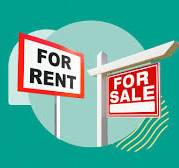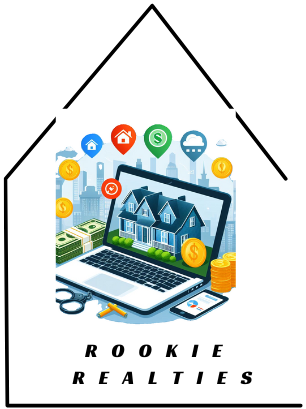
Buying vs. renting has always been a debate. Buying has always been favored over renting. If you are planning on staying long term, and love the location of your home, then buying would make sense, however, if you are only at a location short term, then renting may be the better option.
The idea of buying your first home is as thrilling as it is overwhelming. You’re not just picking out a house, you’re investing in your future.
Paying rent might feel like tossing your money into a black hole, while with a mortgage you are building equity in your home allowing your investment to appreciate over the years.
Home ownership offers you the ability and freedom to remodel or upgrade your home to your specific taste, which will, also, if done properly will add equity to your home.
Home Ownership
The dream of coming home to a place that perfectly reflects your personal style is the beauty of owning your own home. But buying that perfect home depends a lot on the economy, as home prices and interest rates can fluctuate with the economy, something to keep in mind when considering buying a home. The economy can also increase or threaten job security. And depending on the area you purchase may require HOA fees or specialty insurance packages,(i.e., flood insurance, etc.)
Once you find that perfect home, to purchase the home, you will need closing costs, insurance, inspections, down payments to obtain your mortgage, not to mention all the paperwork that is required by the mortgage company.
Along with home ownership comes home improvements, repair bills, taxes and a monthly mortgage. However, home improvements will not only make your space more comfortable and appealing, they often increase the home’s value as well. Every upgrade you make can be thought of as investing in your own asset. Contrast this with a rental where any improvements or customizations you add might need to be undone before moving out, or worse, you lose your investment entirely.
Owning a home naturally comes with an emotional benefit. Having a permanent place that belongs to you and your family creates a sense of stability and belonging that can deepen your connection to within a community. This isn’t just a financial transaction; it’s a commitment to your own piece of the world—a place where family memories are made.
Renting
Let’s talk about the reality of renting. When you rent, you live with the knowledge that the space isn’t truly yours. There’s always a set of rules to follow, often laid out by a landlord. In comparison, owning means more privacy and security—your home is your sanctuary, with no one else holding a key but you.
There’s a strong case for renting, especially if you’re not quite ready to plant roots. Renting offers flexibility that’s just not available when you own. If you need to move for a job, a change in relationship status, or just a desire for a new view—breaking a lease is often easier than selling a house.
Initial costs are another area where renting shines. Typically, you’ll face a security deposit and maybe the first and last month’s rent upfront. Compare that to the down payment, closing costs, and other fees associated with buying, and the financial barriers to entry are significantly lower when you rent.
Renting can also be a way to test-drive different neighborhoods, home styles, or cities. If you’re new to an area or unsure about where you want to settle down, the commitment to a monthly lease gives you the freedom to explore without the financial ties of a mortgage.
Also, renting comes with fewer responsibilities. No need to worry about repairing the roof or replacing a broken furnace—it’s typically your landlord’s job to handle maintenance and repairs, giving you more time and potentially saving you from unexpected financial hits.
How to Determine What’s Best for You
The decision between renting and buying is a big step, and you want you to feel confident in your choice.
If you’re considering owning a home, being financially stable is crucial. This isn’t just about having enough for a down payment; it’s also about being prepared for the ongoing costs of homeownership, which go beyond mortgage payments and include maintenance, insurance, and property taxes.
A key part of your decision-making should involve market research. That’s going to include not only current home prices but also trends in the local real estate market. Could your potential new home lose value, or is it likely to be a wise investment? Knowing this can help guide you.
Don’t overlook lifestyle considerations. Do you crave stability or are you seeking flexibility? Homeownership comes with responsibilities that renting doesn’t impose, such as repairs and longer-term financial commitments. If you’re not sure about living in one place for at least a few years, or if you anticipate a change in job or family status, renting might be more suitable for the time being.
Finally, I strongly advise chatting with experts. Real estate professionals can provide insights into the home-buying process that you didn’t know you needed. Financial advisors can help you analyze your personal finances and long-term goals. Together, these perspectives can illuminate the path that’s right for your unique situation.
Remember, your first home-buying decision doesn’t need to be your last. The real estate market is changing constantly, and there’s a lot of opportunity in making informed, calculated decisions. Choose something that fits you lifestyle, you can always adjust your approach down the road. I really hope that you feel empowered and prepared to make the decision that best fits your life.
